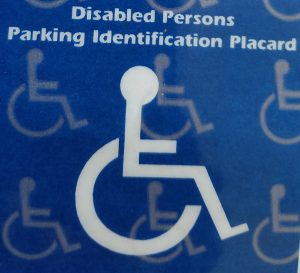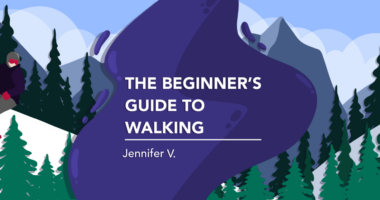I’m Tired of Being Judged for Using a Disabled Parking Permit

If I asked a random person on the street if they think I have a disability, their answer would probably be no.
However, one of the effects of my latest neuromyelitis optica (NMO) attack is that I do not entirely feel my legs. Additionally, I can’t walk long distances. I am sensitive to heat and cold. On a cold or hot day, my body can’t adjust to the temperature. Therefore, my mobility decreases and my pain increases. It feels like I’m dragging a prisoner’s shackle ball.
Dealing with these NMO symptoms can be challenging, but it’s even more challenging when others judge me because they can’t see that I have a disability.
A perfect example is when I’m judged for using a disabled parking permit. My doctor understands my struggle and recommended one. The permit allows me to park in designated areas that are close to the places I need to go.
I use it only when necessary, for two main reasons: I prefer to leave the parking space for people who have more limited mobility than me, and I do not want to deal with judgment and looks when I park in these spaces. But I do not see anything wrong with parking in a disabled parking space when several are available.
I have had two unpleasant experiences parking in these designated spaces. One incident was in a local church parking lot. I had been discharged from the hospital two days earlier. It was a hot summer day, and I needed to walk holding my husband’s arm. Anyone could see that I was walking with difficulty.
That day, I used my permit to park in a disabled parking spot. A parking ministry volunteer asked me why I had parked where I did. Her job was to help churchgoers park. I politely explained that my permit gave me permission to park there. She responded that I looked healthier than her. Her statement was very offensive, but I decided to ignore it.
The other unpleasant experience happened while I was conducting a home visit in an apartment complex in another state. There were three disabled parking spaces in the visitors’ section, and I parked in one of them. It was pretty cold, and I was having a hard time walking. Upon exiting my car, a woman yelled at me from an apartment window, insisting I couldn’t park there. I told her it was a visitor’s parking spot, and I had a disabled parking permit. She didn’t believe me.
So, I parked two blocks away. I was working and didn’t want any problems with other residents of the apartment complex. I didn’t have time to argue, either. As a result, I was late for the home visit because the severely cold weather forced me to walk more slowly than I was used to. I barely made it.
When I finished the home visit, I ran into someone who worked at the apartment complex’s office. I asked him if it was OK for me to park in a disabled visitor’s parking space with my disabled parking permit. He looked at me like I was asking something obvious. He just replied “yes” without questioning me for a second.
I wonder why people with invisible disabilities have to go through these situations. Do we need to wear a cast or display visible lesions to convince people that we have a disability?
I propose three possible solutions to avoid experiences like mine with presumptuous people: One, walk around with our MRI records to show them where our lesions are. Two, carry around special glasses with X-ray vision that allow them to see through our bodies. Three, offer them an on-the-spot lecture about invisible disability.
***
Note: Neuromyelitis News is strictly a news and information website about the disease. It does not provide medical advice, diagnosis, or treatment. This content is not intended to be a substitute for professional medical advice, diagnosis, or treatment. Always seek the advice of your physician or other qualified health provider with any questions you may have regarding a medical condition. Never disregard professional medical advice or delay in seeking it because of something you have read on this website. The opinions expressed in this column are not those of Neuromyelitis News or its parent company, Bionews, and are intended to spark discussion about issues pertaining to neuromyelitis optica spectrum disorder.








Leave a comment
Fill in the required fields to post. Your email address will not be published.